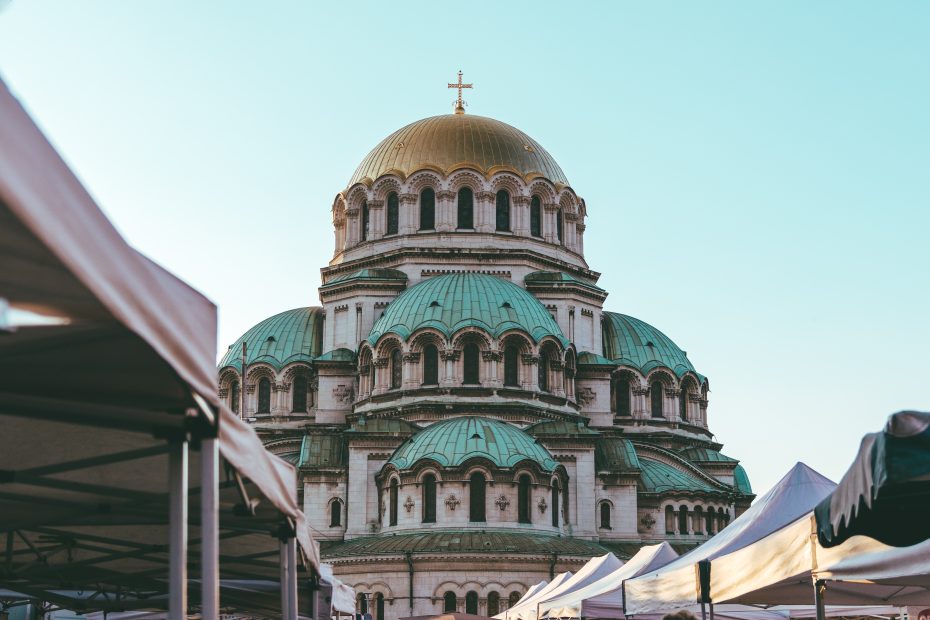Table of Contents
Introduction
Nestled between the Balkan and Rhodope mountains, Bulgaria is a country blessed with incredible natural beauty and a rich cultural heritage spanning millennia. From ancient Thracian tombs to medieval fortresses, from vibrant modern cities to pristine nature reserves, Bulgaria offers countless treasures just waiting to be uncovered by visitors. Join me on a journey through time to unveil the profound history, culture, and splendor of this captivating country.
Bulgaria’s Ancient Roots
The story of Bulgaria begins with its ancient roots in the lands of the mysterious Thracians, a people who inhabited vast territories in the Balkans during antiquity. Splendid painted tombs like the UNESCO site at Kazanlak give us a glimpse into their sophisticated culture. This fertile region also attracted Greek, Roman, and Byzantine settlers who left their marks on cities like Plovdiv, Sofia, and Varna. But it wasn’t until the 7th century AD that the First Bulgarian Empire arose, laying the foundations of the modern Bulgarian nation when Slavs merged with the native Thracians.
The Middle Ages
After the First Bulgarian Empire waned, the Second Bulgarian Empire emerged as a dominant Balkan power during the 12th-14th century “Golden Age of Bulgaria.” Medieval fortresses and monasteries like Rila Monastery were constructed across the country, showcasing distinctive Byzantine architecture and art. However, Ottoman conquest absorbed Bulgaria into its empire for nearly 500 years until the Bulgarian revival of the 19th century.
Bulgaria’s Reawakening
As the Ottoman grip weakened, passionate revolutionaries and intellectuals led the struggle for Bulgarian independence. Hard-won sovereignty came in 1878, followed by decades of nation-building. Bulgaria endured wars, communism, and difficult transitions before emerging as a modern European state, proud of its identity but open to the world.
Discovering Bulgaria’s Nature
Beyond its cities and historical sites, Bulgaria’s real treasure is its pristine nature. Diverse landscapes range from the alpine peaks of the Rila Mountains to the limestone cliffs of Belogradchik, while lush forests, wetlands, and coastal areas abound with wildlife like brown bears and Dalmatian pelicans. Hiking through national parks like Pirin or Central Balkan reveals Bulgaria’s magnificent biodiversity.
Cultural and Historical Treasures
dotted with relics of bygone eras. Towering monasteries, intricate Thracian tombs, ancient Greek and Roman cities, Ottoman mosques, and more await discovery here. Bulgaria has nine UNESCO World Heritage Sites, encompassing natural and cultural wonders. Marvel at the medieval Boyana Church’s vivid 13th-century frescoes in Sofia, the ancient theater of Philippopolis in Plovdiv, and the Thracian tombs of Kazanlak, humming with legend and mystery.
Modern Cities and Coastal Resorts
Beyond its antiquity, Bulgaria offers plenty of modern attractions. The eclectic capital Sofia mixes ornate churches with communist-era architecture, while Bulgaria’s second city Plovdiv oozes artistic flair. Coastal Varna and Burgas boast lovely beaches and nightlife. The old-world charm of towns like Koprivshtitsa and Veliko Tarnovo mesmerizes visitors, with their Baroque Revival architecture and cobblestoned lanes. Don’t miss Bulgaria’s mountain resorts either, like Bansko with its excellent ski slopes.
Cuisine and Wine
Bulgarian cuisine may be lesser known globally but offers tasty surprises. Tomatoes, peppers, yogurt, cheeses, and pastries infuse local dishes with delicious flavor. Sample classics like shopska salad, grilled meats, or banitsa pastries. Bulgaria’s winemaking traditions date back to Thracian times, with old-vine local grapes used in wines like the ruby-red Melnik. Visit local markets and eateries to experience Bulgaria’s rustic food firsthand.
Travel Tips and Itineraries
With attractions spread across the country, planning a Bulgaria trip itinerary helps maximize your time. Spring and early summer offer ideal weather for exploring before peak crowds arrive. A one week itinerary could cover Sofia’s highlights plus Rila Monastery and Plovdiv, while two weeks allows adding the Black Sea, Veliko Tarnovo, and more. Travelers short on time can focus on just one or two regions. Whatever you choose, Bulgaria guarantees an intriguing blend of nature, history, and culture
Conclusion
From the ancient Thracians to modern resort towns, Bulgaria rewards travelers with a captivating portrait of contrasts and consistency through time. Lush nature, dynamic urban life, and echoes of ages past permeate this diverse country. As Bulgaria continues evolving, its rich heritage and identity stay strong, inviting visitors to immerse themselves in its beauty and magic. Let Bulgaria’slayers of history and culture unveil themselves before your eyes on a memorable journey through this storied land.
FAQs
What are the top places to visit in Bulgaria?
Some top places to visit include Sofia, Plovdiv, the Rila Monastery, Black Sea resorts, Veliko Tarnovo, and scenic spots like the Belogradchik Rocks. Bulgaria’s many UNESCO World Heritage Sites are also highlights.
When is the best time to visit Bulgaria?
Late spring through early summer (May-June) offers ideal weather without peak crowds. Summer can be hot, while winter brings more rain and snow. Shoulder seasons like September-October have decent weather and fewer tourists.
What types of food and wine is Bulgaria known for?
Signature foods include yogurt, cheeses, grilled meats like kebabs, stews, salads, and pastries like banitsa. Local grapes produce Bulgaria’s famous Melnik wine and other varietals.
What languages are spoken in Bulgaria?
Bulgarian is the official language, written in Cyrillic script. Many people also speak English in cities and tourist areas. Russian, German, and other European languages are sometimes spoken too.
What is Bulgaria known for producing?
Bulgaria is known for agricultural products like roses, sunflowers, tomatoes, wines, and tobacco. It also produces chemicals, machinery, metals, and minerals. Outsourcing IT and manufacturing are major industries today.
